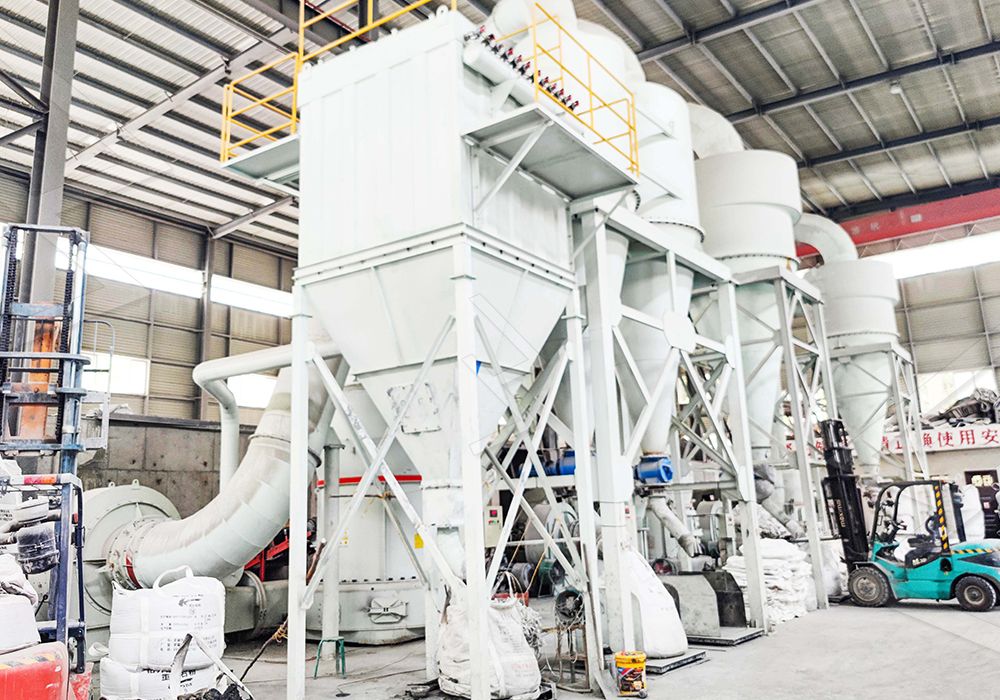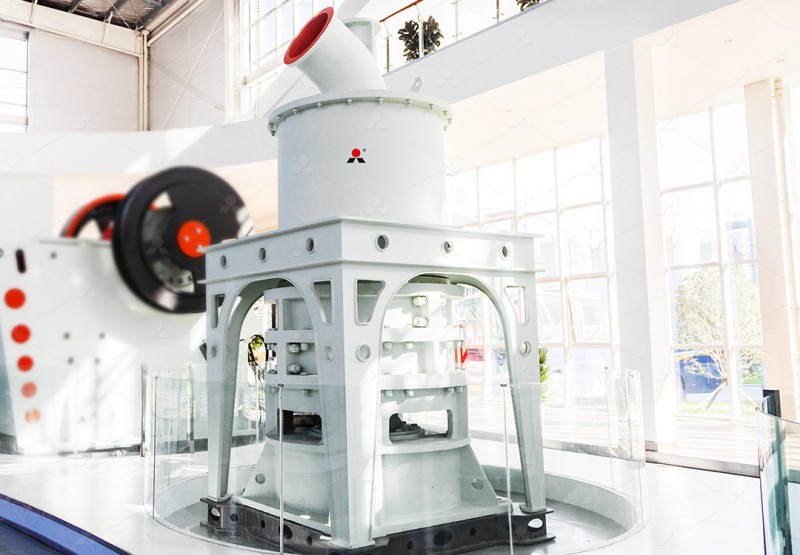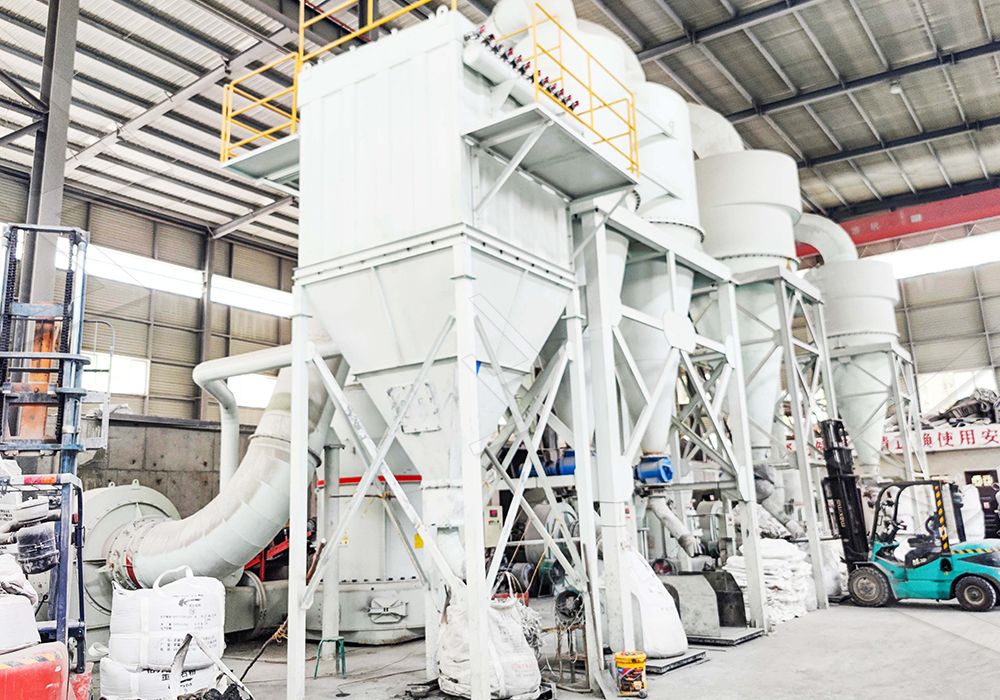Raymond Mill for Gypsum Grinding: Efficient Powder Processing Solutions
We provide a wide range of mills — including Raymond mill, trapezoidal mill, vertical mill, ultrafine mill, and ball mill, obtained ISO9001 international quality certification, EU CE certification, and Customs Union CU-TR certification. Suitable for processing minerals such as limestone, phosphate, quicklime, kaolin, talc, barite, bentonite, calcium carbonate, dolomite, coal, gypsum, clay, carbon black, slag, cement raw materials, cement clinker, and more.
The discharge range of these mills can be adjusted to meet specific processing needs, typically from 80-400 mesh, 600-3250 mesh, and can achieve the finest particle size of up to 6000 mesh(D50).
If you are looking for a reliable grinding solution to turn stone or minerals into fine powder, please feel free to contact our online customer service.
Raymond Mill for Gypsum Grinding: Efficient Powder Processing Solutions
In the world of industrial mineral processing, gypsum stands as one of the most versatile and widely used materials. From construction drywall to agricultural soil conditioning, this sulfate mineral requires precise grinding to achieve the optimal particle size for various applications. For decades, Raymond Mill technology has served as the backbone of gypsum processing operations worldwide, offering reliable performance and consistent output quality.

The fundamental principle behind Raymond Mill technology involves the centrifugal grinding of materials between rotating rollers and a stationary grinding ring. This mechanism proves particularly effective for gypsum processing, as it generates the precise particle distribution needed for both construction and industrial applications. The system’s integrated air classification ensures consistent fineness while the closed-circuit operation minimizes dust emissions.
Advanced Solutions for Modern Gypsum Processing
While traditional Raymond Mills continue to serve many operations effectively, technological advancements have introduced more sophisticated solutions for operations requiring higher efficiency and finer particle control. For facilities processing gypsum where ultra-fine powder specifications are critical, our MW Ultrafine Grinding Mill represents a significant leap forward in processing technology.
Specifically engineered for customers requiring ultra-fine powder production, the MW Ultrafine Grinding Mill handles input sizes of 0-20 mm with capacities ranging from 0.5 to 25 tph. This machine incorporates advanced German cage-type powder selector technology, enabling precise fineness adjustment between 325-2500 meshes with screening rates achieving d97≤5μm in a single pass. The innovative design eliminates rolling bearings and screws within the grinding chamber, significantly reducing maintenance concerns and potential machine damage from loose components.

Environmental and Operational Advantages
Modern gypsum processing facilities face increasing pressure to minimize environmental impact while maintaining production efficiency. The integration of efficient pulse dust collectors and mufflers in advanced grinding systems addresses both dust and noise concerns, ensuring operations comply with stringent environmental standards. The external lubrication system of the MW Ultrafine Grinding Mill allows for maintenance without production stoppages, supporting continuous 24-hour operation that maximizes facility throughput.
When comparing energy consumption, advanced grinding mills demonstrate remarkable efficiency improvements. The MW Ultrafine Grinding Mill specifically achieves 40% higher production capacity compared to jet grinding mills and stirred grinding mills operating at the same fineness and power levels. Even more impressively, its yield doubles that of traditional ball grinding mills while consuming only 30% of the energy required by jet grinding systems.
Selecting the Right Technology for Your Operation
The choice between traditional Raymond Mills and more advanced ultrafine grinding technology ultimately depends on specific production requirements, target particle size distribution, and operational priorities. For operations focused on standard construction-grade gypsum products, Raymond Mills offer proven reliability and cost-effectiveness. However, for manufacturers producing specialized gypsum products requiring precise particle control or ultra-fine specifications, the enhanced capabilities of the MW Ultrafine Grinding Mill provide distinct advantages in quality control and production efficiency.

Frequently Asked Questions
What is the typical particle size range achievable with Raymond Mills for gypsum processing?
Traditional Raymond Mills typically produce gypsum powders ranging from 80 to 325 mesh. For finer specifications up to 2500 meshes, the MW Ultrafine Grinding Mill provides superior performance with precise particle control.
How does the energy consumption of advanced grinding mills compare to traditional systems?
Modern grinding technology like the MW Ultrafine Grinding Mill can reduce energy consumption by 30-50% compared to conventional systems while increasing production capacity by up to 40%.
What environmental features are incorporated into modern gypsum grinding systems?
Advanced systems integrate pulse dust collectors, mufflers, and noise elimination technologies to minimize environmental impact, operating fully within national environmental protection standards.
Can the same grinding mill process different grades of gypsum?
Yes, both Raymond Mills and advanced systems like the MW Ultrafine Grinding Mill can process various gypsum types, with adjustable fineness controls allowing quick transitions between different product specifications.
What maintenance advantages do modern grinding mills offer?
Innovative designs eliminate internal rolling bearings and screws in the grinding chamber, while external lubrication systems enable maintenance without production stoppages, significantly reducing downtime.
